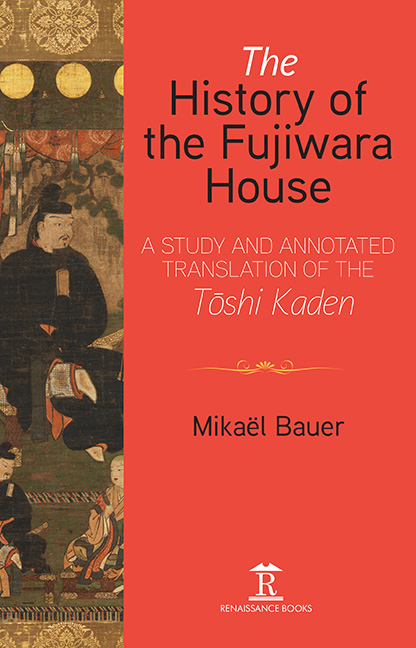Summary
THIS BOOK CONTAINS an introduction and an annotated translation of the eighth-century clan history Tōshi Kaden or The History of the Fujiwara House. The text is attributed to the courtier Fujiwara no Nakamaro (706–764) who, despite having been one of the most talented bureaucrats of the Nara period, was largely forgotten by later members of the Fujiwara clan given his reputation as traitor to the throne. Passages from the imperial history Shoku Nihongi, or the chronicle Wake no Kiyomaro den, portray him as a shrewd individual whose sole purpose was to seize power at court and usurp the throne. His ‘rebellion’ of 764 was one of several challenges facing the female sovereign Kōken (718–770), two other examples being the Tachibana no Naramaro (721–757) conspiracy of 757 and the infamous Dōkyō incident of 769. However, as will be referred to below, the image of Nakamaro as traitor to the throne has been problematized by several Japanese and Western scholars.
The History of the Fujiwara House comprises three biographies: the Kamatari den (The Chronicle of Kamatari), the Jōe den (The Chronicle of Jōe), and finally the Muchimaro den (The Chronicle of Muchimaro). A fourth part, the Fuhito den , is referred to at the end of Kamatari's chronicle but has unfortunately been lost. What follows is not a comprehensive analysis of the foundational period of the Fujiwara clan, but provides an introduction and translation of a text that will contribute to a better understanding of the politics and culture of eighth-century Japan.
Other better known historical sources, such as Kojiki, Nihon Shoki or the Rikkoku shi are, of course, central to the study of the early history of the Japanese court and the emergence of the Fujiwara clan, but Tōshi Kaden is important because it contains passages and details not found elsewhere. Not only does Tōshi Kaden help us to reconstruct the political and cultural context of its period, it also urges us to reflect on East Asian intertextuality and, more specifically, it shows the degree to which the drive to represent the Fujiwara family as inseparable from the line of sovereigns relied on continental rhetoric. Tōshi Kaden clearly borrows from Nihon Shoki but also uses many references and quotations from continental histories.
- Type
- Chapter
- Information
- The History of the Fujiwara HouseA Study and Annotated Translation of the <i>Tōshi Kaden</i>, pp. xi - xviiiPublisher: Amsterdam University PressPrint publication year: 2020



